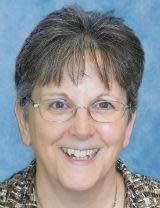Freedom: Anticipating Independence Day

Christianity’s roots reach deep into the rich soil of Judaism, so it was not surprising that Rabbi Barry Marks’ recent reflection on Torah and freedom in these pages felt familiar. “Freedom is never absolute and must always be circumscribed by and conditioned on considerations of the common good,” he wrote.
In other words, relationships are at the heart of law, creating a circle called “the common good” that includes God, all of God’s people, and all of creation.
I’ll refrain from enumerating the ways concern for the common good is absent from our nation today, except to say that what some consider freedom has nothing at all to do with what is common, or good. Nor is it freeing.
More: Rabbi Barry Marks: The boundaries of freedom
Christians sometimes recognize as saints those who do care for the common good. Saints possess a deep interior freedom that sustains them, even as they hold the tensions and face opposition that got them recognized as troublemakers during their lifetimes.
I’m thinking of three such people on the U.S. Catholic Church’s short list for canonization. Besides the fact that each is from a place to which we Dominican Sisters have a connection, what they hold in common is oppression and freedom—a freedom born of relationship with the Law Giver and the persons for whom the law exists.
August Tolton, a priest of our diocese, escaped slavery in Missouri by crossing the Mississippi into Illinois near Quincy during the Civil War. After his ordination in Rome, he returned to Quincy only to face rejection by his brother priests, who seemed mostly concerned that their white parishioners were flocking to the “Negro church” to hear August’s fine preaching — and taking their Sunday offerings with them. In spite of this rejection — so serious that he was transferred to Chicago — August made it known he wished to be buried in Quincy among the very persons who rejected him.
The descendants of Nicholas Black Elk, who died in 1950, still worship at the South Dakota parish where Springfield native and Dominican Sister Barbara Bogenschutz is pastoral minister. He was a Lakota holy man and a faithful Catholic, who, holding his two traditions in respectful tension, was suspect by members of both. Unwilling to abandon either his Lakota or Catholic traditions, Nicholas possessed the freedom to embrace and integrate them.
More: Sister Beth Murphy: Labor Day's Catholic roots
Sister Thea Bowman, a Franciscan Sister of Perpetual Adoration from Canton, Mississippi, was already dying of cancer when she addressed the U.S. Catholic Bishops in 1989. She opened her remarks with the question “What does it mean to be Black and Catholic?” and answered it with a slave song: “Sometimes I feel like a motherless child…a long way from home.” As she finished her address, in which she gently chided her audience for their insular patriarchy, she somehow persuaded hundreds of bishops to hold hands with one another Civil-Rights-style and sing “We shall overcome.”
In their lifetimes, these holy ones demonstrated a great degree of interior freedom anchored by their relationships with the Giver of the law and their commitment to the common good. This enabled August, Nicholas, and Thea to hold the contradictions they experienced in their church and society and remain faithful to God and tolerant of the blindness of those who were not able to fully grasp the freedom to which they were called.
How did they manage to hold these painful contradictions and still love so deeply, consistently, freely? Not in bondage to their personal desires or the will and desires of others, but in the deep, relational, personal freedom they experienced in relationships of love. It is for this kind of freedom that God made us free. Happy Independence Day.
Sister Beth Murphy, OP, is the communication director for the Dominican Sisters of Springfield and lives at Cor Unum House, where the Dominicans accompany young adult women on their spiritual journey.
This article originally appeared on State Journal-Register: Freedom: Anticipating Independence Day
